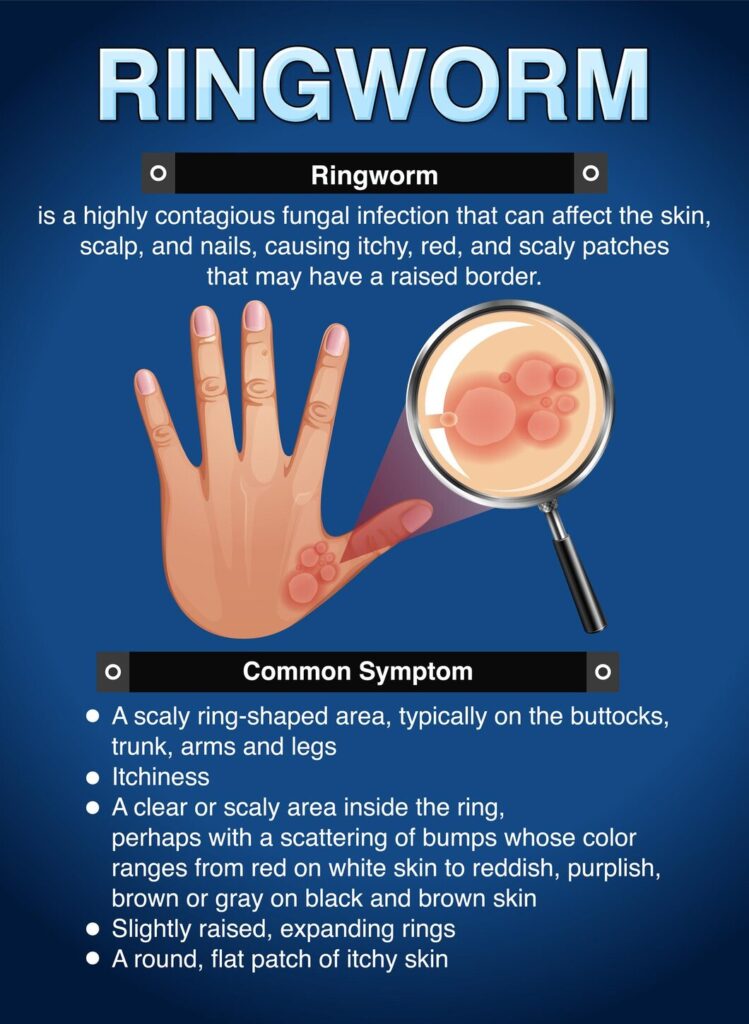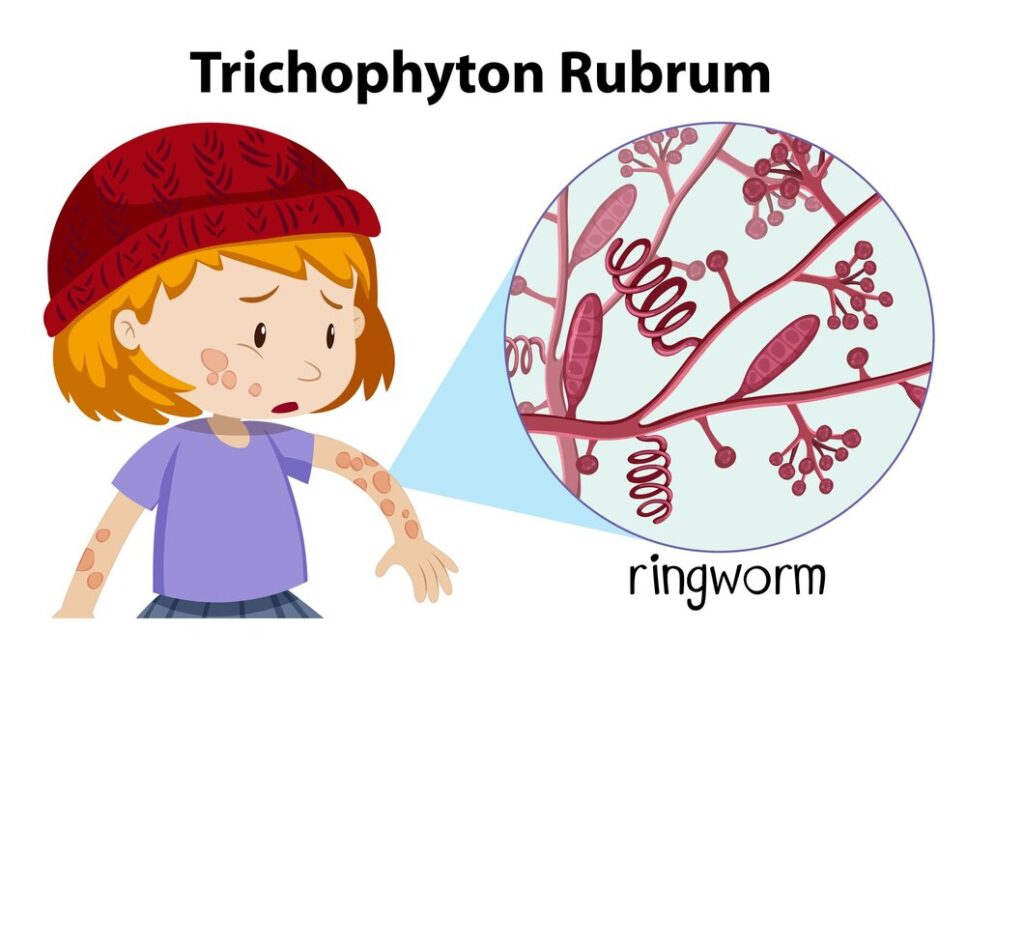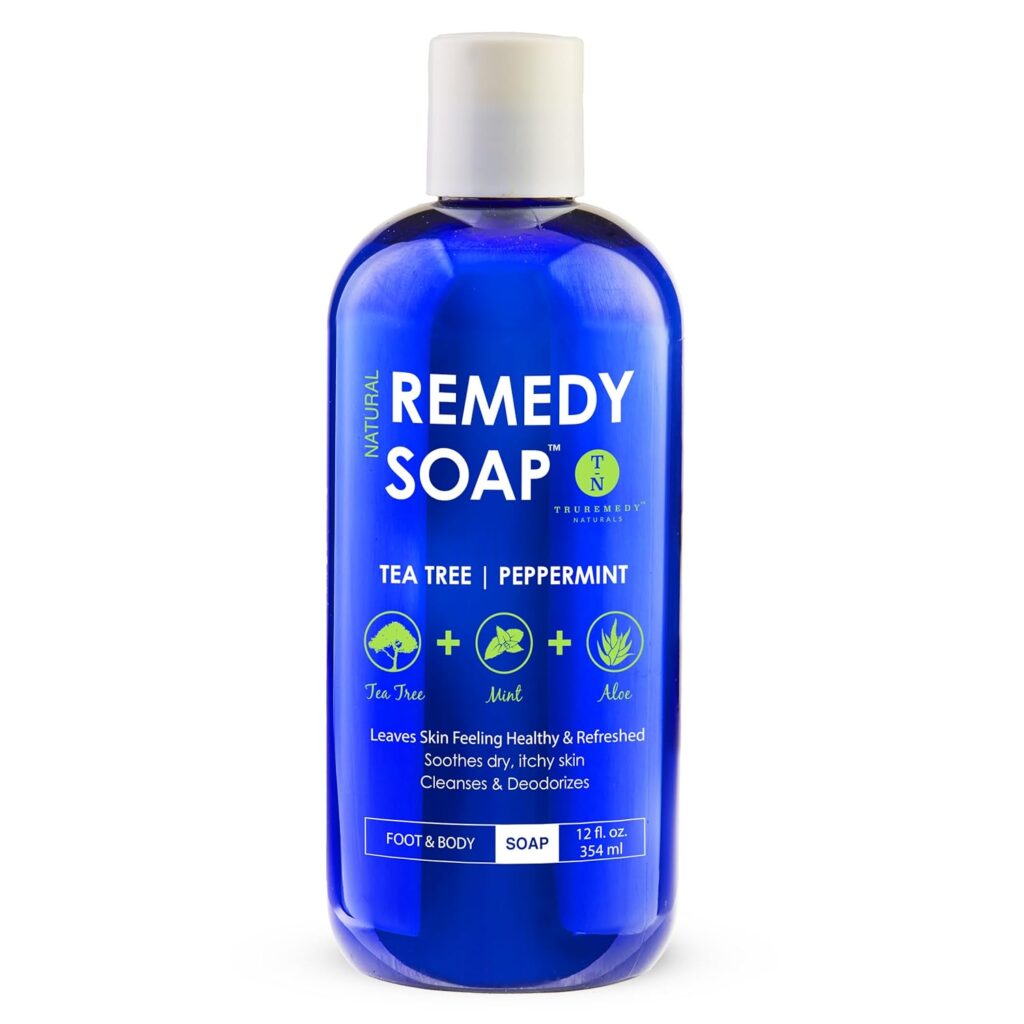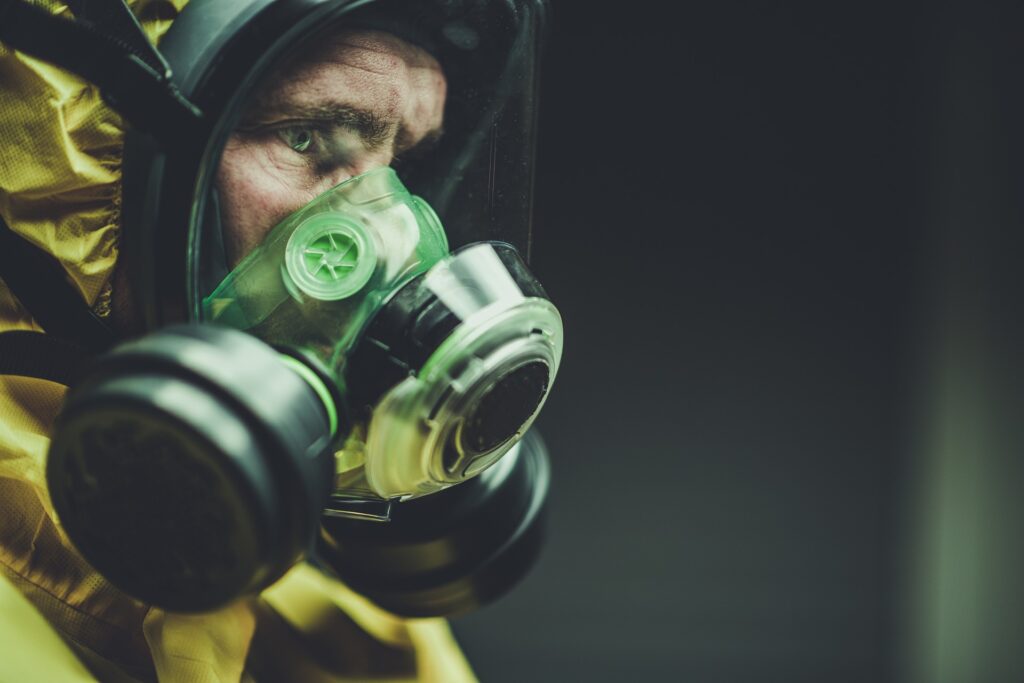Ringworm(Tinea);
What is Ringworm?
Ringworm, despite its name, is not caused by a worm but is actually a fungal infection that affects the skin. It presents as a red or silver rash in the shape of a ring, hence the name.

Causes:
Ringworm is caused by various types of fungi known as dermatophytes. These fungi thrive in warm, moist environments such as locker rooms, swimming pools, and shared sports equipment. Direct contact with an infected person or animal can also transmit the infection.

Signs and Symptoms:
The primary symptom of ringworm is a circular rash that may be red, scaly, and itchy. It often starts as a small bump that enlarges and forms a ring shape. The rash may appear on any part of the body, including the scalp (tinea capitis), body (tinea corporis), groin (tinea cruris or jock itch), feet (tinea pedis or athlete’s foot), or nails (tinea unguium).
Read Another Article – Pityriasis Versicolor
Risk Factors:
Certain factors increase the risk of developing ringworm, including:
- Close contact with infected individuals or animals
- Sharing personal items such as towels, clothing, or sports equipment
- Living in warm and humid climates
- Weakened immune system
- Poor hygiene practices
• Truremedy Naturals Remedy Tea Tree Oil Body Wash

Treatment of Ringworm:
Ringworm, despite its name, is a treatable fungal infection that commonly affects the skin, scalp, and nails. Treatment typically involves antifungal medications, which can be applied topically or taken orally, depending on the severity and location of the infection. Here are some effective strategies for treating ringworm:
1. Topical Antifungal Medications:
- Over-the-counter antifungal creams, lotions, or ointments are often the first line of treatment for mild cases of ringworm.
- Common topical antifungals include clotrimazole, miconazole, terbinafine, and ketoconazole.
- Apply the medication directly to the affected area according to the instructions on the product label or as directed by your healthcare provider.
2. Oral Antifungal Medications:
- For more severe or widespread infections, oral antifungal medications may be prescribed by a healthcare professional.
- Oral medications such as terbinafine, itraconazole, and fluconazole are effective in treating ringworm, especially when topical treatments alone are insufficient.
3. Antifungal Shampoos:
- If ringworm affects the scalp (tinea capitis), medicated shampoos containing antifungal agents like ketoconazole or selenium sulfide may be recommended.
- Use the shampoo as directed, allowing it to remain on the scalp for the specified duration before rinsing thoroughly.
4. Keep Affected Areas Clean and Dry:
- Wash the affected skin or scalp with mild soap and water daily to remove any crusts or debris.
- Dry the area thoroughly with a clean towel or allow it to air dry completely to prevent moisture buildup, which can exacerbate fungal growth.
5. Treat Concurrent Infections:
- If ringworm is accompanied by secondary bacterial infections or inflammation, your healthcare provider may prescribe additional medications such as antibiotics or corticosteroids to manage these symptoms.
How to prevent Ringworm:
Ringworm, a contagious fungal infection, can be prevented with simple measures. By incorporating good hygiene practices and taking precautions, you can significantly reduce your risk of contracting ringworm. Here are some effective strategies to prevent ringworm:
1. Maintain Proper Hygiene:
- Wash your hands regularly with soap and water, especially after using the restroom, touching animals, or engaging in activities that involve close contact with others.
- Shower after participating in activities that cause you to sweat excessively, such as exercising or playing sports.
2. Keep Skin Clean and Dry:
- Dry yourself thoroughly after bathing or swimming, paying particular attention to areas prone to sweating, such as the groin, armpits, and between the toes.
- Avoid wearing damp or sweaty clothing for prolonged periods, as fungi thrive in moist environments.
3. Avoid Sharing Personal Items:
- Refrain from sharing towels, clothing, hairbrushes, combs, or other personal items with others, especially if they have a known fungal infection.
- Use your own sports equipment, such as helmets, gloves, and protective gear, rather than sharing with others.
4. Practice Good Foot Hygiene:
- Keep your feet clean and dry, especially between the toes, to prevent athlete’s foot (tinea pedis), a type of ringworm infection.
- Wear clean socks made of breathable materials, and change them daily.
5. Protect Against Animal Contact:
- If you have pets, ensure they receive regular veterinary care to detect and treat any fungal infections promptly.
- Wash your hands after handling pets, particularly if they have patches of missing fur or signs of skin irritation.
6. Maintain a Clean Environment:
- Regularly clean and disinfect surfaces that come into contact with skin, such as gym equipment, shower floors, and wrestling mats.
- Launder clothing, bedding, and towels in hot water and dry them thoroughly to kill any fungal spores.
7. Avoid Walking Barefoot in Public Areas:
- Wear flip-flops or sandals in communal showers, locker rooms, and around swimming pools to reduce the risk of coming into contact with fungal spores.
8. Educate Yourself and Others:
- Learn about the signs and symptoms of ringworm to recognize it early and seek prompt treatment if needed.
- Educate family members, friends, and coworkers about the importance of preventing fungal infections and encourage them to adopt preventive measures.
Differential Diagnosis:
Several skin conditions may resemble ringworm, including:
- Psoriasis: Characterized by thick, red patches of skin with silvery scales.
- Eczema: Causes dry, itchy patches of skin that may become inflamed and cracked.
- Contact dermatitis: Results from skin contact with an irritating substance, leading to redness and itching.
- Nummular dermatitis: Presents as coin-shaped patches of irritated skin.
Differentiating ringworm from these conditions is essential for accurate diagnosis and appropriate treatment.
Conclusion
Ringworm is a common fungal infection that affects people of all ages and backgrounds. Understanding its causes, symptoms, and treatment options is crucial for prompt diagnosis and effective management. By practicing good hygiene and avoiding contact with infected individuals or animals, the risk of ringworm can be minimized.
Read Another Article: Health Benefits of Aparajita

